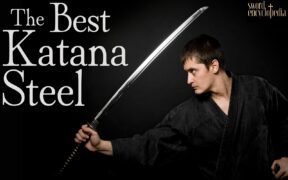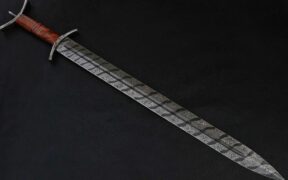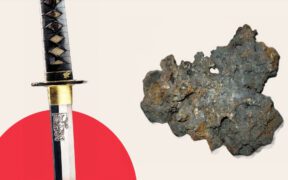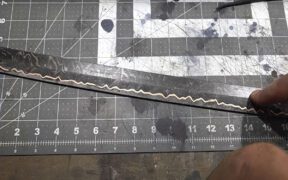Is Damascus Steel Good for Katanas? – Pros and Cons
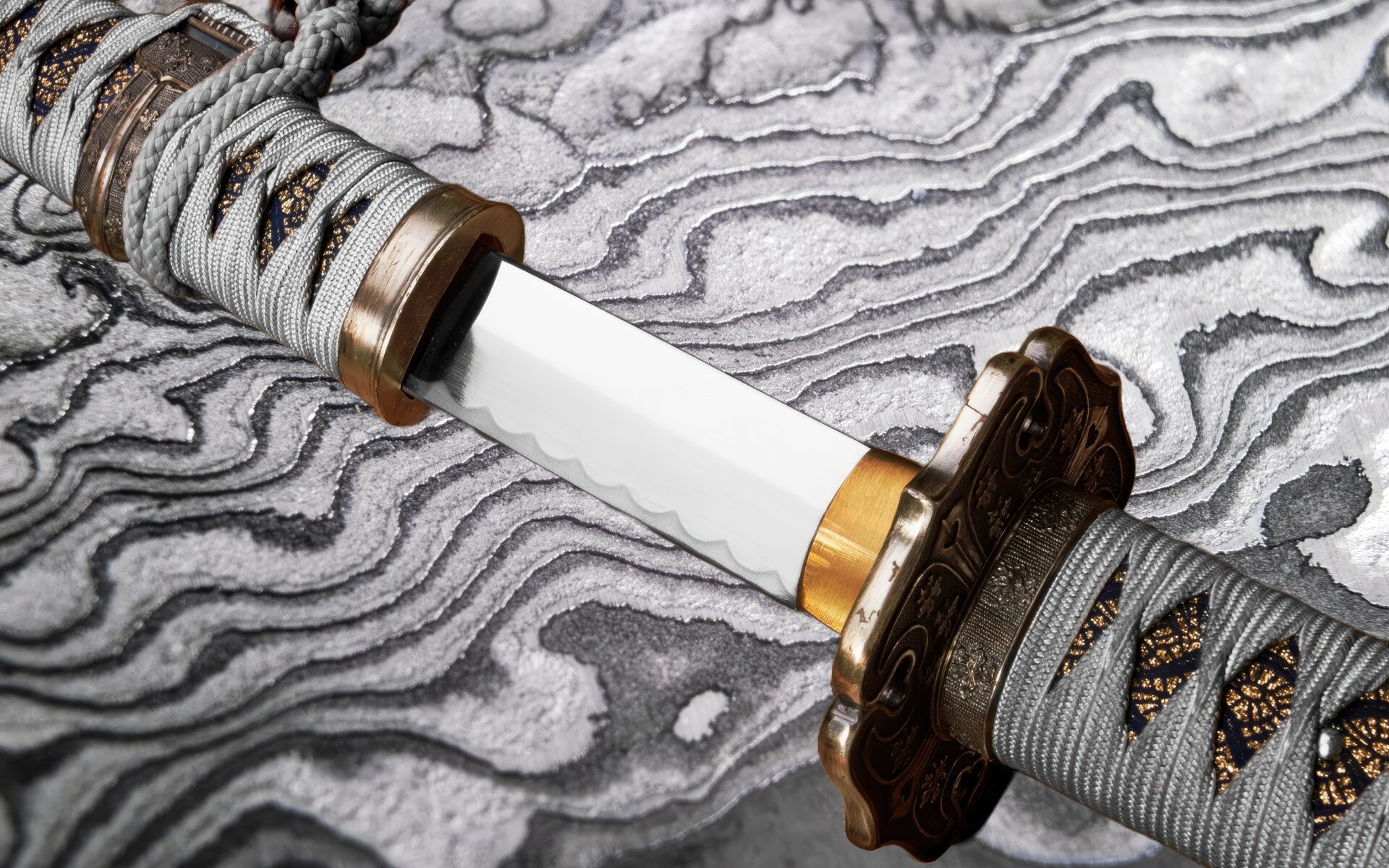
A Damascus katana sword refers to a Japanese-styled katana blade once used by the samurai with a Damascus steel blade. These katana swords are popular thanks to their vibrant blade patterns, making them a perfect decorative piece for any sword display or collection.
This article will explain in detail what a Damascus katana is. We will start by identifying the term Damascus. Then, we will test the Damascus steel on a katana and consider the pros and cons.
What is a Damascus Steel Katana?
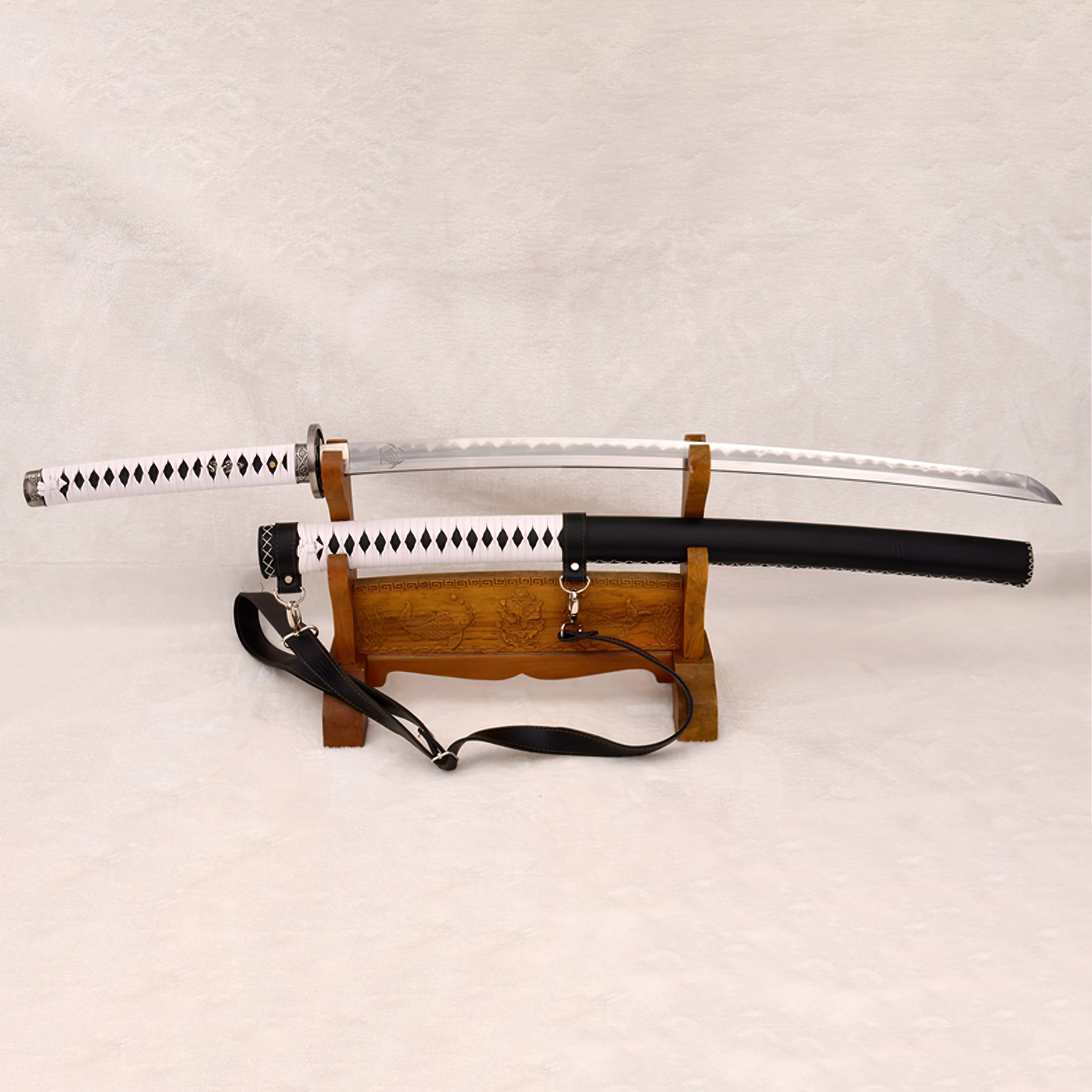
A Damascus steel katana is a Japanese samurai katana sword with a vibrant Damascus pattern across its blade, achieved by several rare but authentic forging processes to achieve layers.
- Real Damascus – iron and steel turned into a melted state, then manipulated with different heat timing and various elements to bring out patterns during the blade’s solidification
- Forge Welded Damascus – two or more steel or iron types forged, welded, and folded together that can be acid etched or laser painted to achieve the iconic vibrant patterns
Damascus refers to ancient steel used in Western and Central Asia that replaced Indian wootz steel. Today, this pattern has been recreated; however, modern Damascus is mostly forge-welded and folded.
Pros and Cons of Damascus Katana Swords
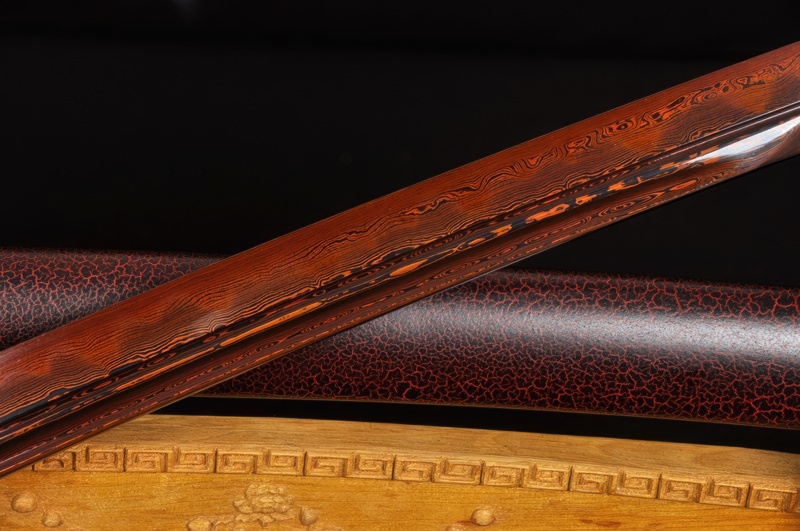
A regular Japanese katana sword and a Damascus katana sword can feature the same fittings, such as a tsuba (handguard), tsuka (handle) with genuine ray skin, habaki (collar), and have the same overall length. Still, they differ in the creation and strength of their blades.
Pros
A Damascus katana samurai sword can look like a traditional katana featuring real hamon (blade temper line) but with a modern touch. Here are some positives of owning one.
- Unique Look and Customization – you can have a katana unlike any other and order the Damascus patterns as you see fit, even having the blade painted black or red for a unique look.
- LARP and Cosplay – Damascus katana swords are more popular in modern media than anime or video games, making them ideal for roleplaying and cosplay outfits.
- Conversation Piece – due to the history of Damascus steel, creating your sword can spark conversation about its craft when compared to a traditional Japanese piece.
- Functionality – most Damascus katana swords are functional for light-cutting practice depending on their craftsmanship, blending art with practicality.
- Durability – if your Damascus Katana is mixed and made with stainless steel or laser etched, it can form a protective layer on the steel that will help protect it from rust
Cons
While modifying the blade is suitable for many buyers, it comes at a cost, especially regarding its strength, composition, sharpness, and longevity when cutting. Here are some negatives.
- Less Functional – the forge welding or folding of the blade induces many air gaps in its composition, making it far less functional than a mono-steel sword.
- Historical Significance – Damascus steel sword layers are different from a historical Japanese samurai sword with its jigane (blade grain) layers.
- Untraditional Craft – the craft of your hand-forged Damascus steel sword will also differ from that of a Japanese swordsmith with a handmade tamahagane steel blade.
- Training – an untraditional-looking katana might be rejected for training arts like Iaido or kendo.
- Inconsistency in Quality – some Damascus katanas can be mass-produced without full tangs, making them unreliable and fragile.
